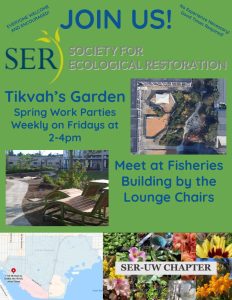Position available: CEC Communications Assistant
Department: UAA, Community Engagement and Leadership Education (CELE) Center
Hours: 12-15 hours per week, flexible with student’s schedule
Compensation: $19.97 per hour
Work Study Job Number: CELE02
Undergraduate Academic Affairs (UAA) shapes, advances, and stewards a world-class
undergraduate academic experience for students at the University of Washington. Staff, faculty
and students in UAA deepen and enrich the learning experience for all undergraduates,
recognizing and supporting the unique learning path of each individual student and the
commitment of each academic program to excellence in learning and teaching.
Within UAA, the Community Engagement and Leadership Education (CELE) Center unit
provides students with opportunities to develop the knowledge, skills and attitudes needed to
contribute to thriving communities. Building authentic community and campus partnerships
drive our work. CELE programs are centered around the areas of community-engaged learning,
democratic engagement, leadership education, pK-12 student success and place-based
initiatives.
The CELE Center is accepting applications for a Community-Engaged Courses (CEC)
Communications Assistant. Community-engaged courses combine service in the community
with structured preparation and reflection opportunities, and address concerns that are
identified and articulated by the community.
Objectives: The Community-Engaged Courses (CEC) Communications Assistant will work in
close cooperation with CEC staff in the CELE Center to provide support on key components of
the center’s Community-Engaged Courses program and will support digital communications
through email, web contact forms, and CELE social media channels. The CEC Communications
Assistant will contribute to the University of Washington’s commitment to community
engagement through supporting both community organizations and undergraduate students in
the community-engaged learning process.
Job Responsibilities:
- Under guidance of CEC staff, participate in the development of undergraduate community-engaged courses positions by communicating with contacts at community-based and non-profit organizations by phone, email, and in-person.
- Provide peer advising to students from community-engaged courses, managing student
inquiries both in-person and over email.
Support CEC staff in quarterly database management with processing forms, updates
and documentation. - Assist with in-class presentations to community-engaged courses during the quarter.
- Graphic design and content development for outreach materials and event collateral.
- Represent the CELE Center at tabling and outreach events on campus.
Required Qualifications:
- Excellent communication, interpersonal, and organizational skills.
- Ability to work effectively with diverse populations of students, community
partners, and staff. - Experience navigating and managing digital platforms.
- Highly motivated and self-directed.
- Genuine interest in community engagement and service.
- Interest in personal and professional development.
Preferred Qualifications:
- Experience with community engagement/service/volunteer work with community
organizations or non-profits in the greater Seattle community. - Practice in public speaking and/or presentations.
- Exposure to platforms such as Prezi, Canva, and Mailchimp.
- Interest and excitement around communications.
Benefits:
- Valuable experience for students to gain professional and personal development
through work experience and coaching. - Interesting/relevant work environment for students who are already involved or
interested in student services, public service, and non-profit work.
To apply please submit the following:
- A current resume including the names and contact information for two references.
- A cover letter that includes:
○ Why you are applying for this position
○ Articulating your interest in communications, peer advising, and developing
community-campus relationships.
○ A description of two to three things you seek to learn from this opportunity
Applications will be accepted on a rolling basis. The position will remain open until filled. Application review will begin in mid-August, and priority consideration will be given to applications received by August 19. The student selected for this role should plan for orientation and training to begin the week before Autumn Quarter classes start; exact schedule during the week of September 16, 2024 to be determined after hire.
To request disability accommodation in the application process, contact the Disability Services Office at 206.543.6450/V, 206.543.6452/TTY, 206.685.7264 (FAX), or dso@u.washington.edu.
Priority Deadline: Please submit all materials via email by Monday, August 19 to engage@uw.edu. We are hoping to conduct interviews during the final week of August and make hiring decisions during the first week of September. Questions can be directed to Maria Lee, Program Manager of Community-Engaged Courses at the email listed.
Box 352803
171 Mary Gates Hall Seattle, WA 98195-2803
206.543.4282
engage@uw.edu
https://cele.uw.edu/
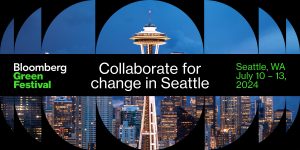


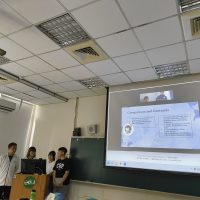
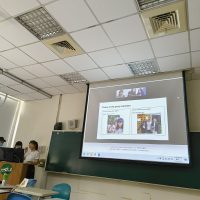

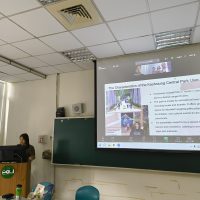
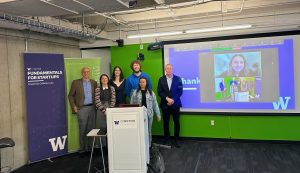
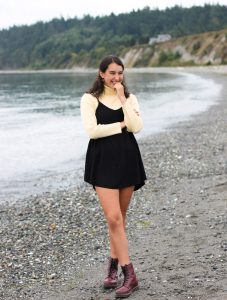 Ava Vaughan, Program on the Environment Undergraduate Scholarship
Ava Vaughan, Program on the Environment Undergraduate Scholarship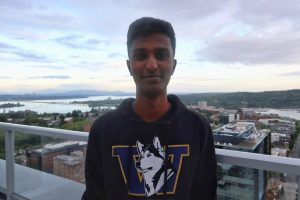
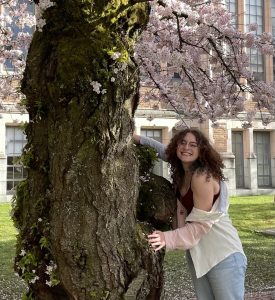 Sofia Berkowitz, Program on the Environment Undergraduate Scholarship
Sofia Berkowitz, Program on the Environment Undergraduate Scholarship
